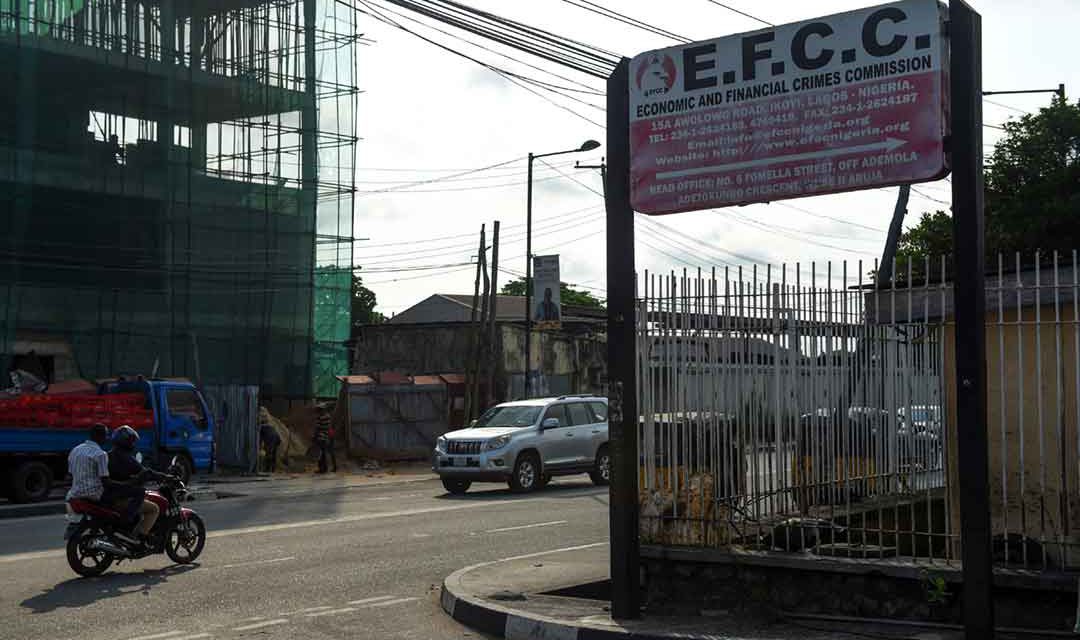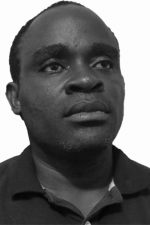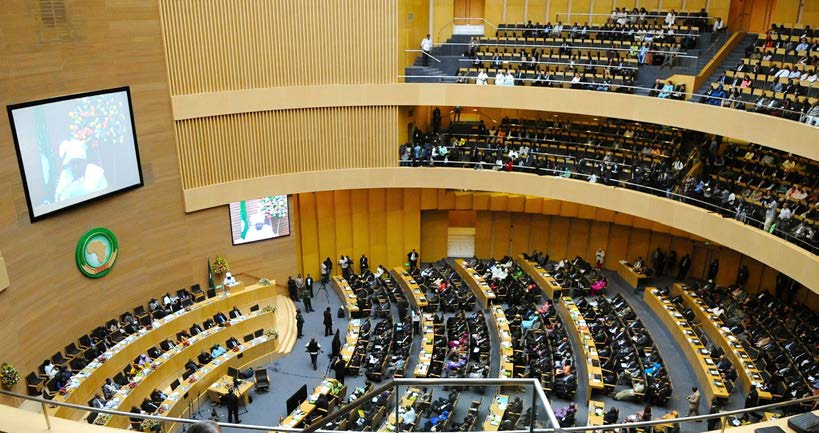One of Nigeria’s most dramatic episodes of judicial corruption happened in January 2013. The country’s Economic and Financial Crimes Commission (EFCC) had charged six officials with pilfering 32 billion naira [$204m] from the Nigerian police pension fund. One of the accused, John Yakubu Yusuf, a deputy director in the police pension service, had admitted pocketing two billion naira ($12.7m) in exchange for a two-year prison term as part of a plea bargain. In the event the judge was even more lenient, offering him the option of a 750,000 naira ($4,776) fine as an option and letting him walk out of court. An intense public outcry followed. The commission, considered Nigeria’s most efficient anti-corruption agency, later claimed it had been tricked into accepting the plea deal and rearrested Mr Yusuf on fresh charges. The National Judicial Council, a regulatory body whose aim is to guarantee judicial independence, subsequently suspended the judge, Justice Mohammed Talba, without pay for a year. But Nigerian anti-corruption activists said the court case was yet another illustration of the rot in the Nigerian judiciary.
They claim loopholes in the country’s legislation allowed crooked officials to raid the country’s coffers with impunity. The outrage about the pension fund scam reflected a growing mood of citizen impatience with “corrupt, small-minded” politicians, wrote journalist Remi Adekoya about the country’s ruling elite. Nigeria ranks 136 out of 174 countries on pressure group Transparency International’s 2014 corruption perceptions index. Its judiciary is the fifth most corrupt of 12 government sectors, according to Transparency International’s 2015 global corruption barometer. Commentators and activists say reforms must start with the country’s flawed criminal justice system. “It is the first step, and we would deceive ourselves if we do otherwise,” Ubong Ben of Facts and Figures, an Abuja-based research group, told Africa in Fact. Yet attempts to punish the plunderers have not succeeded. The EFCC, one of Nigeria’s three anti-corruption agencies, says it obtained 1,046 convictions between 2003 and 2014. Mr Ben, however, claims these figures reflect only the “smaller thieves”: internet fraudsters, document forgers, impersonators and dubious property brokers.
Since its inception in 2003, the EFCC has opened more than 30 cases targeting former governors, ministers, lawmakers and bank chiefs, but has only won four convictions. Cases linger, sometimes for ages, delayed by technicalities. “We have cases that we have gone to the Supreme Court on [mere] interlocutory applications, while the substantive case is [held] in abeyance for years,” Wilson Uwujaren, spokesperson for the EFCC, told Africa in Fact. An example is the case involving former governor Chimaroke Nnamani of south-eastern Enugu state. He is accused of laundering 5 billion naira ($25m) through a secret account. Eight years after the case was filed, the trial has not begun. The EFCC says Mr Nnamani has deliberately stalled the case by making frequent applications to travel abroad for medical treatment, according to online Premium Times newspaper. This July the court ordered the seizure of some of his assets after several of his co-accused pleaded guilty. Nigeria’s criminal laws allow smart lawyers to exploit loopholes and stall cases, said Itse Sagay, a former dean of the law faculty at the University of Benin and appointed by Nigeria’s new president in August to head a new committee to oversee legal reforms.
One technique lawyers use is to drum up technical challenges to a case and distract judges from the main charges. They ask for frequent adjournments or contest a court’s jurisdiction. If a judge finally decides that he has authority over the case, the defendant often appeals. The substance of a case is ignored. By the time the highest court finally decides on the lower court’s jurisdiction, a decade might have elapsed. “By then, the investigating police officer [or prosecutor] may have retired,” Mr Sagay said in an interview with Punch magazine. “The officials of the Ministry of Justice who handled [the case] at the early stages in the High Court may have been promoted, and the judges themselves may [also] have retired,” he said. “What we call ‘prosecution fatigue’ sets in [and] the case dies a natural death. It is not that the accused is innocent. Rather, the state does not have [the] stamina to pursue the case to the end.” Questions have also been raised about judges’ use of legal loopholes to hand down light sentences to people convicted of serious crimes, such as stealing billions of naira, while others who are convicted of petty crimes face stiff penalties.
In 2010 Cecilia Ibru, a former Oceanic Bank chief executive was accused of stealing $1.2 billion. She pleaded guilty to three of 25 counts of fraud and mismanagement and was jailed for six months, but allowed to serve her time at a luxury Lagos hospital. Three months after the 2013 police pension fraud ruling, public anger was stirred again when a 31-year-old former convict, Kelvin Ighodalo was sentenced to 45 years in jail for stealing a governor’s phone in the southern state of Osun. Judges are easily bribed. Senior judicial figures should be subjected to lifestyle audits and their accounts scrutinised to find unusually large amounts of money that might flag the acceptance of bribes, Debo Adeniran, executive chairman of the Coalition Against Corrupt Leaders (CACOL) told Africa in Fact. Between 2009 and 2014, the National Judicial Council sanctioned 64 judges for various transgressions, including corruption, and dismissed three of them, Chief Justice Mahmud Mohammed said at a Nigerian Bar Association seminar in June. None of the sanctioned or dismissed judges faced prosecution.
However, the Administration of Criminal Justice Act of 2015, a new law approved by the former president, Goodluck Jonathan, introduces sweeping judicial reforms. Mr Sagay’s committee of experts will oversee the implementation of these reforms. The new law stipulates that cases must be heard without adjournments. Where a postponement is inevitable, it must not exceed two weeks. No case may be interrupted more than five times. Judges, even if promoted to a higher court during a case, may no longer abandon the trial; previously, this often meant that cases had to be restarted. Nigeria’s judges must now focus on the substance of a case, while also hearing technical objections, such as challenges to their jurisdiction, Mr Sagay told The Punch in early September. His committee will also push for stiffer sentencing for corruption convictions. In addition, the judicial council has issued new disciplinary regulations to rein in corrupt judges. But activists warn that some sections of the new rulebook may have an adverse effect, and continue to embolden corrupt judges. An example is a section stipulating that a complaint of misconduct must be lodged against a judge within six months of an alleged incident. Revelations of possible misconduct can often take longer than that.
“In most cases, the corrupt conduct of a judicial officer may only become public knowledge following a careless slip, or [as a result of] the irrepressible work of investigative reporters,” Joseph Otteh, executive director of Access to Justice, a Lagos based non-governmental organisation that carries out legal research, told a news conference in September. “Whenever the facts become known, let due process follow.” Mr Adeniran claims the law should have included even stiffer sanctions. In particular, he argues, judges should no longer be allowed to hand down concurrent sentences. “If an individual is guilty of five corruption charges and each is punishable by a two-year term, then the ruling should be 10 years in jail. No concurrent sentence,” he says. “That’s what will deter corruption.”
Ini Ekott is the deputy managing editor at Premium Times, Nigeria. He has researched and written extensively on governance and leadership in Africa. He is a former Wole Soyinka investigative reporter of the year, and was a member of the global team of journalists that conducted the Pulitzer-winning Panama Papers reporting













